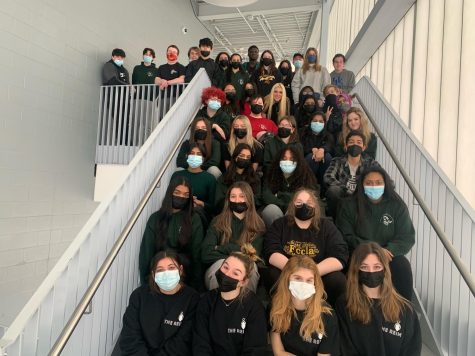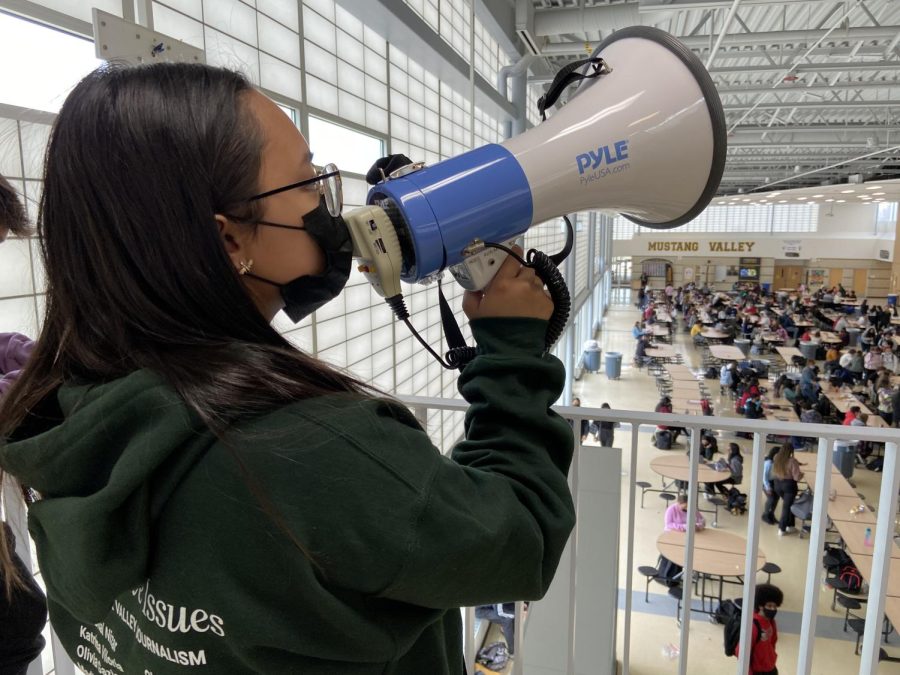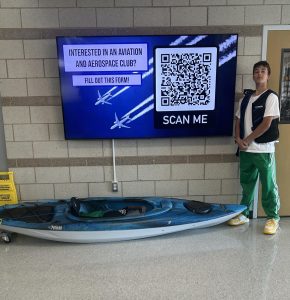Editorial: We amplify your voices
As student journalists, it is our job to amplify the voices of our teen community. If no one says it, we will.
February 25, 2022
We find the facts. We write the facts. We speak the facts.
This week is Scholastic Journalism Week, and we are focused on amplifying voices. We amplify our own voices; especially the student community around us. We are the connector from their voices to the concerns that affect them.
Yesterday was Student Press Freedom Day and it serves as an important reminder that student journalism is real journalism. We cover the stories of our student body just like any other publication with theirs.
As teenagers, we know that our voices are often ignored when we speak our minds. Too often, teenagers are not heard. Our voices have value, especially when it comes to the issues that affect us. But many adults are too busy looking at what is wrong to them rather than listening to us.
Society is progressively moving towards diversity and freedom. We are becoming more accepting of the different cultures people are. But somehow that is still limiting the thoughts and words of our adolescent youth. How can we celebrate a teenager’s diversity, culture, and identity but not listen and understand what they are saying?
Over the last two weeks, everybody was talking about 15-year-old figure skater Kamila Valieva at the Olympics. Her failed drug test was the topic of discussion in which she was confirmed to have a performance enhancing drug. In her situation, people on social media shared their views on whether allowing her to compete was justified or not. But did we ever stop to think about how she was feeling? The pressure she was under? A teenager our age with the eyes of the world watching and judging her every move?
When our district was considering changing its mask policy recently, many parents spoke out and even shut down a board meeting. However, nobody asked the kids what they thought. Many students tried to speak their mind in response to the policy either in support or in rejection. Ultimately, the district made a decision to transition into mask optional on Feb. 22. But, there was not really a point in which the teen voices were taken into consideration but as a student newspaper, we did.
Talk to teenagers, listen to them, not about them.
Student journalists amplify their voices because if no one else says it, we will. That is the crucial role we play and that is why the Journalism Education Association helps us student journalists across the country celebrate why we do what we do.

We give a voice to teenagers who are limited.
#MakingConnections was on Monday in which we hold different types of connections. They range from how we connect our teen voice with the world and we make connections with them by gathering their first hand accounts.
#AmplifyYourVoice is the overall theme and the focus on Tuesday. As student journalists, we play a crucial role in producing the voices of our student community. Why are parents the one to attend board meetings and discuss student concerns? Why are administrations making decisions without taking into account students? We find the student voices and we make that heard.
We play a crucial role in making sure that we get the facts of our community and we produce it. #SharingStories on Wednesday tells us that no one else can tell the stories of our community better than ourselves, especially teens.
#UnmuteYourself was on Thursday and unironically is Student Press Freedom Day. We celebrate our accomplishments in the free press and as well as the many adolescents across the country that have spoken their voice and thoughts.
We live in a government that is all about freedom. #DemocracyInAction is today and we focus on the vitality in freedom of press. Without the First Amendment, we as journalists would not be able to do what we do and people would not be able to speak what they think; that is important.
Everyone and anyone should speak out without any judgment. Speaking out is not limited to just journalists and speaking concerns is not limited to adults. Teenagers all apply to that and therefore, should be taken into account. There is reason and value to the words that teens speak. If no one else says it, we, as student journalists, will. We, the Stampede Editorial Board, find the facts. We write the facts. We speak the facts.







